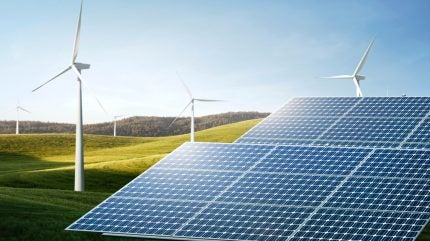
Clean energy production in France has reached a six-year high, with nearly 95% of the country’s power generated from clean sources, a significant lead over other European countries, reported Reuters.
The rise in clean energy was reported despite a decline in wind and hydro power, as record solar output and the highest nuclear generation since 2019 compensated for the shortfall.

Discover B2B Marketing That Performs
Combine business intelligence and editorial excellence to reach engaged professionals across 36 leading media platforms.
France’s reliance on nuclear energy, which accounts for approximately 70% of its electricity, has been a defining feature of its power system.
However, challenges such as ageing reactors and operational risks during warm periods have prompted a shift towards diversifying energy sources.
Energy think tank Ember reports that nuclear power’s share in France’s total generation capacity has decreased from 45% in 2019 to 39% in 2024.
The growth of renewable energy has been swift, with solar and wind farms now representing around 30% of France’s generating capacity.

US Tariffs are shifting - will you react or anticipate?
Don’t let policy changes catch you off guard. Stay proactive with real-time data and expert analysis.
By GlobalDataHydroelectric power contributes an additional 16%, while gas and bioenergy plants make up 12% and 2%, respectively.
This diversification effort has been part of a broader commitment to clean energy, as France has also significantly reduced coal-fired capacity and increased bioenergy and hydro capacity.
Furthermore, the expansion of clean power capacity, up by 17% since 2019, has contributed to keeping France’s power costs competitive.
According to LSEG, prices in France have been 25% to 35% lower than those in Germany and Italy. This economic advantage is bolstered by France’s status as a net power exporter.
LSEG data indicates that in 2025, France’s spot wholesale base power costs averaged around €73 ($82) per MWh, compared to €98/MWh in Germany, €107/MWh in Poland, and €125/MWh in Italy.
This pricing advantage enables French power firms to export surplus power profitably to Europe’s interconnected power markets.
Earlier this month, Spain and Portugal requested the European Union to facilitate the development of additional power interconnectors with France.





